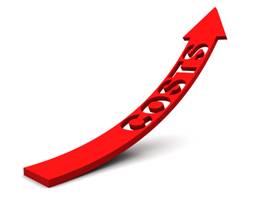It’s impossible to predict the future, but experts’ financial projections and current patterns in the financial world give us a sense of what the future could hold. Inflationary pressures have been exacerbated for those in the US by new IRS regulations and increasing interest rates.
To ensure your financial security this year, it’s imperative that you make the right decisions. Here is some great financial advice that can help you achieve your goals.

Start Early
It might seem like common sense, but you should begin saving and making wise financial choices as soon as possible; start early in your life. An example would be to make sure you open a pension account as soon as you have a job and contribute generously to it. Building a secure financial future is always a good idea. It’s never too late to start planning for a better financial future, no matter where you are in your career, but the earlier you start, the better the results will be.
Pay Down Your Debts
Prioritise paying off your high-interest debt this year to prevent the upcoming increase in interest rates.
Because of the COVID-19 epidemic, the Federal Reserve in the United States lowered interest rates, making it easier for customers to borrow money. However, as the economy has improved and present inflation has been more prominent, the Federal Reserve is quite likely to raise interest rates, making borrowing an expensive business. Because of this, everything will be affected, from credit card debt to mortgages.
Consider paying off your credit card debt to avoid paying exorbitant interest rates in the future. Use credit cards with introductory zero percent tariffs. Also, if you have a variable-rate mortgage, you may want to switch to a fixed-rate mortgage to avoid having your rates fluctuate with market conditions. It’s ideal to speak to an expert mortgage broker to help you with this if it’s the right thing for you to do.
 Look At Unnecessary Expenses
Look At Unnecessary Expenses
Doing a review of your finances will help you better understand your spending habits. It’s possible that you want to stick to a predetermined spending plan, but most people are unaware of their own spending habits. As a result, your monthly savings may fall short of what you had hoped. But the good news is you can deal with this quite easily.
To begin, establish a monthly budget spreadsheet in which you record all of your incoming and outgoing transactions. An annual magazine subscription, for example, that you no longer read, could turn out to be an unhealthy spending habit, but you might only notice it once you note it on your spreadsheet.
Overspending at restaurants and buying high-end goods you don’t need are two examples of bad spending habits. The first step in dealing with these issues is to recognise the patterns.
Assess Your Financial Security
As you begin a new year, you may want to look at your financial situation. Evaluate this in terms of your capacity to pay your bills and your ability to cover any unforeseen medical expenditures or income loss.
Depending on your current financial situation, you may need to expand your emergency fund, put more money into investments, or take other measures to prepare for unanticipated financial problems. Aside from that, if you’re in a good place financially, you may want to put aside money for other things like a new home or new ventures.
You must log in to post a comment.